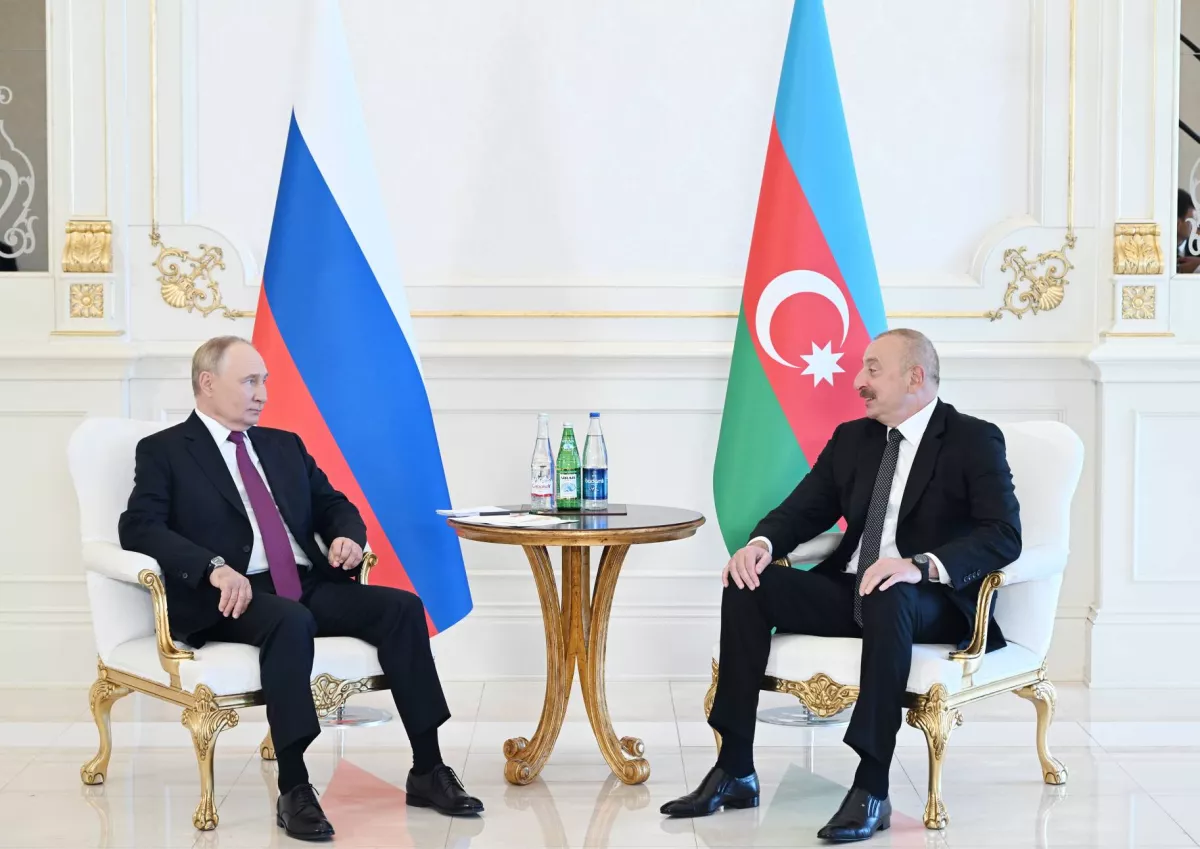Russian foreign minister contradicts Putin on Karabakh issue Diplomatic discrepancy
One of the most intriguing events of the week was the speech by Russian Foreign Minister Sergei Lavrov at the Moscow State Institute of International Relations (MGIMO). After his welcoming address, in which Lavrov also touched on Russia's position in the world, a question-and-answer session followed.
A student of Armenian descent asked about the current status of Russian-Turkish relations through the lens of the conflicts in Syria, Ukraine, and "Nagorno-Karabakh." The Russian Foreign Minister responded by stating that Russia and Türkiye are trusted partners and are working together to resolve various conflicts.
However, we were surprised—and even puzzled—by Lavrov's subsequent remarks regarding the Armenian-Azerbaijani settlement: "The Karabakh issue, which was resolved by the Armenian leadership at the end of 2022 by signing an agreement with Azerbaijan, with the participation of the European Union, recognizing the 1991 borders, within which the Nagorno-Karabakh Autonomous Region was part of the Azerbaijani Soviet Socialist Republic…".
In the past, Russian diplomats, and even the head of state, have suggested that Yerevan was to blame for the "loss of Karabakh" by recognizing Azerbaijan's sovereignty over the region. However, Lavrov's current statement takes this notion a step further.
Firstly, this idea has never been expressed so categorically, almost to the point of absurdity. How could Armenia have "resolved" the Karabakh conflict when it suffered such a crushing defeat in the war?
Secondly, this stance does not align with the current spirit of Russian-Azerbaijani relations or President Putin's position. While Putin has previously made statements similar to Lavrov's recent comments, in October 2023 he also remarked that "it was only a matter of time before Azerbaijan would restore constitutional order in Karabakh, and how and when that would occur was just a question of timing."
Putin's ambiguity in previous statements was completely dispelled during his state visit to Azerbaijan in August 2024. Notably, the word "Karabakh" was never mentioned by him, even once. For Putin, the "Karabakh conflict" is a thing of the past; he spoke exclusively about the Armenian-Azerbaijani conflict. Here are a few quotes from Putin during his visit to Baku: "Russia will continue to actively support the normalization of Azerbaijani-Armenian relations and the conclusion of a peace treaty based on the well-known trilateral agreements reached by the Presidents of Russia, Azerbaijan, and the Prime Minister of Armenia in 2020–2022"; "Of course—we touched upon this topic yesterday, and will continue today—it concerns the settlement of the situation in the South Caucasus"; "I know that Azerbaijan is committed to completing all procedures related to the full settlement, this is well known to me. We will discuss this."

By the way, Putin's apparent disregard for the "Karabakh issue" seems to have seriously irked even Kremlin-friendly media circles. So much so that Margarita Simonyan’s "RIA Novosti" went so far as to distort the Russian president's words, presenting the last of the quotes above as if he had mentioned "Karabakh."
Despite the strengthening alliance between Russia and Azerbaijan, the Russian Foreign Minister appears to have a somewhat different view on the resolved conflict compared to the head of state. This is only part of the problem—people can hold different opinions. The real issue is that Lavrov not only holds these views but also publicly articulates them. It seems that the Russian Foreign Minister is so unwilling to accept the resolution of the Karabakh issue that he publicly contradicts his own president.
Additionally, it's worth noting that some in the Russian leadership have expressed a sentiment along these lines: "There’s no point in tearing your hair out if it’s already been torn off," implying that the Karabakh issue is definitively resolved and any further discussion is pointless.
However, Lavrov presents a markedly different viewpoint. According to diplomatic sources, in 2022, during the Commonwealth of Independent States (CIS) summit in Astana, he expressed indignation bordering on panic over what he considered a "grave mistake" by the Armenian leadership in recognizing Azerbaijan's territorial integrity in the Prague Statement signed by Pashinyan.
On a personal level, Lavrov's reaction is understandable. It’s satisfying to engage with a region from the position of a conflict mediator, a role Moscow, with certain reservations, played alongside other co-chairs of the OSCE Minsk Group. It is much less comfortable for Russia to accept the emergence of a small but fully sovereign partner in the region, such as Azerbaijan. For major figures like Vladimir Putin, this shift represents new opportunities rather than a major setback. However, Lavrov seems to prefer remaining in the familiar role of a mediator, where he could previously enjoy a cigar with his American and French colleagues, and the loss of this role represents a significant psychological trauma for him.
Nonetheless, those times are long gone, and the Russian Foreign Minister should align his position with his president’s perspective and the spirit of the alliance between Russia and Azerbaijan.
Finally, it's important to highlight that Lavrov's statements are in stark contrast to the principles of education. Students at MGIMO, who will become future diplomats and politicians, need to understand the truth to effectively navigate the world they will be working in. The fact is that Azerbaijan resolved the Karabakh issue and compelled Armenia to recognize the 1991 borders. Distorting this truth risks misguiding students' understanding of global realities, which could have serious implications for the future of Russian foreign policy.








